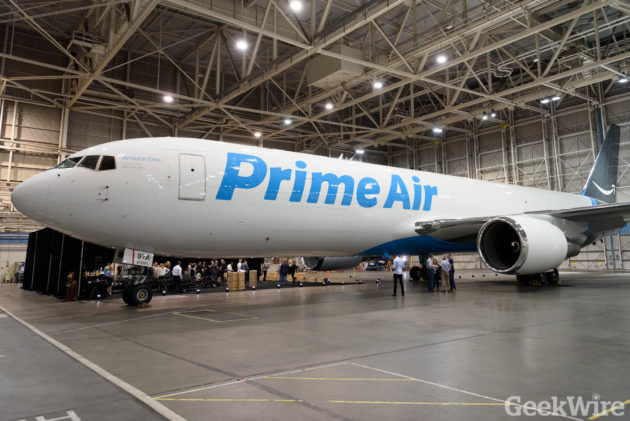
FedEx announced Friday that is ending its FedEx Express U.S. service contract with Amazon, a surprising decision made as Amazon continues to expand its own delivery network.
FedEx said it will “focus on serving the broader e-commerce market” as part of the strategic move, which only impacts air services and not other existing contracts with Amazon and FedEx business units such as FedEx Ground, or international deals. FedEx said Amazon was responsible for less than 1.3 percent of its 2018 revenue, which clocked in at $65.5 billion. It also said Amazon is not its largest customer.
“There is significant demand and opportunity for growth in e-commerce which is expected to grow from 50 million to 100 million packages a day in the U.S. by 2026,” FedEx said in a statement. “FedEx has already built out the network and capacity to serve thousands of retailers in the e-commerce space. We are excited about the future of e-commerce and our role as a leader in it.”
Amazon has historically relied on partners such as FedEx, UPS, and USPS to help deliver its packages. But the company is now investing heavily in its own cargo jets, trailer trucks, and related infrastructure to help support its Prime fast-shipping program.
“We respect FedEx’s decision and thank them for their role serving Amazon customers over the years,” Amazon said in a statement.

It has long been speculated that Amazon’s growing delivery and shipping operations could take market share from companies such as FedEx and UPS.
Jonathan Root, Moody’s senior vice president and lead FedEx analyst, said FedEx’s announcement on Friday “makes perfect sense.”
“FedEx’s decision to no longer provide FedEx Express U.S. domestic services for Amazon.com makes perfect sense given expectations of strong e-commerce growth across the retail sector,” Root said in a statement. “FedEx will achieve higher margins and better returns on its investments in its Express network by re-deploying capacity to customers other than Amazon.”
“We believe Amazon, representing less than 1.3% of FedEx’s nearly $70 billion of consolidated annual revenue, is one of FedEx’ least profitable customers on a margin basis and that the decision implies that Amazon would not agree to financial terms that would meet FedEx’ needs,” Root added.
On a December earnings call, FedEx CEO Fred Smith called Amazon a “good customer of ours.” He went on to say that “we don’t see them as a peer competitor,” referring to Amazon.
FedEx last week said it would roll out seven-days-per-week FedEx Ground delivery. The company is also developing autonomous delivery robots.
Amazon in April pledged to make one-day shipping its new standard for Prime, its $119 per year membership program, cutting delivery time in half on millions of items as competitors such as Target and Walmart roll out similar fast-shipping services. On Monday it said that free one-day shipping will be available to Prime members on more than 10 million products, with no minimum purchase amount.
Earlier this year, Amazon announced the new Amazon Delivery Service Partner program, which lets entrepreneurs start and run their own companies, delivering items purchased on Amazon.com in distinctive blue Prime-branded shirts and vans.
Amazon’s shipping costs have ballooned in recent years as the company aims to speed up delivery. In 2018, Amazon spent $27.7 billion on shipping, an increase of $6 billion or roughly 27.6 percent over the prior year, according to GeekWire research. Worldwide shipping costs reached $7.3 billion in the first quarter, up 21 percent year-over-year.



